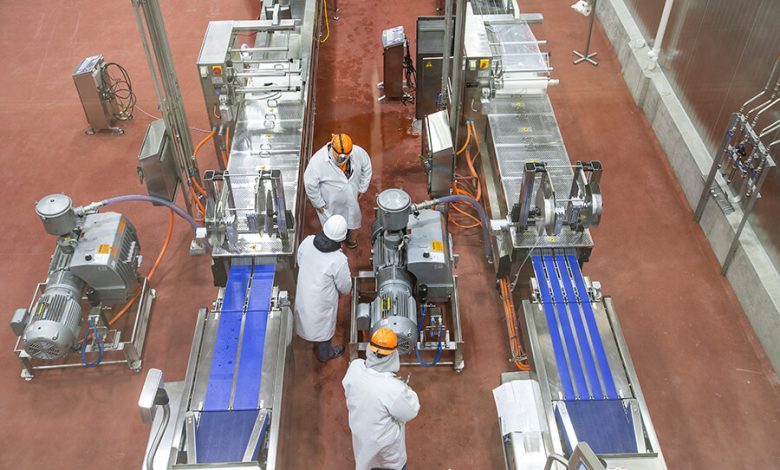
Control system integrators play a vital role in ensuring the smooth operation of automated systems across industries. From manufacturing to energy, they bridge the gap between complex machinery and human oversight. But what technologies do these experts specialize in? It turns out that their skill set covers a wide range of advanced systems that work behind the scenes to keep things running efficiently. Let’s explore some of the key technologies that control system integrators focus on, making modern industrial processes both smarter and more reliable.
Advanced Programmable Logic Controllers and Their Configurations
Programmable Logic Controllers (PLCs) are the backbone of many automated systems. They act as the brain that controls various machinery and processes, executing commands based on input from sensors and other devices. Control system integrators specialize in configuring and programming these PLCs to fit the specific needs of a facility. Each industry has different requirements, whether it’s the speed, timing, or complexity of operations. A skilled controls integrator can tailor PLC configurations to ensure the system meets the precise demands of the process it oversees.
In addition to setting up these systems, control system integrators are responsible for troubleshooting and upgrading PLCs. As technologies evolve and production needs change, these experts ensure the systems stay current and continue to operate efficiently. The ability to adapt to new PLC platforms and optimize configurations is crucial for keeping industrial automation systems running at their peak performance.
Human-machine Interface Systems for Real-time Data Interaction
Human-machine interfaces (HMIs) are the tools that allow operators to interact with the machines they oversee. These systems display real-time data from machines, helping operators monitor conditions and make informed decisions. Control system integrators design and implement HMI systems that are user-friendly, intuitive, and customized to meet the specific needs of the operation. A well-designed HMI can greatly improve efficiency by providing clear visuals and alerts, enabling faster responses to changing conditions.
In some cases, HMIs need to communicate across multiple machines and systems, adding layers of complexity to the control integration process. A control system integrator ensures that the HMI integrates smoothly with all relevant systems, providing accurate data to operators while reducing the risk of errors. This expertise helps maintain seamless operations and keeps production lines moving smoothly.
Supervisory Control and Data Acquisition Systems for Remote Control
Supervisory Control and Data Acquisition (SCADA) systems are essential for monitoring and controlling industrial processes remotely. These systems collect data from sensors and other equipment and provide real-time insights into a facility’s operations. Control system integrators specialize in designing SCADA systems that provide comprehensive oversight, allowing operators to monitor performance, detect issues, and make adjustments from virtually anywhere.
SCADA systems are especially useful in industries where equipment is spread out over large areas, such as energy or water management. By integrating SCADA technology, control system integrators help ensure that these systems run efficiently while giving operators the tools they need to maintain control over every aspect of the process. Remote monitoring through SCADA not only improves productivity but also reduces downtime and maintenance costs.
Distributed Control Systems for Complex Process Automation
Distributed Control Systems (DCS) are designed to manage complex processes across large facilities. Instead of relying on a single centralized control point, a DCS distributes control functions across various locations, improving efficiency and reliability. Control system integrators specialize in setting up and configuring DCS to ensure each part of the process is controlled independently, yet in harmony with the entire system. This decentralization allows for greater flexibility in operations, particularly in industries like oil and gas, where multiple processes need to be managed simultaneously.
The role of a controls integrator in a DCS setup is to configure communication between different control modules, ensuring that each one works seamlessly with the others. This type of control integration demands a deep understanding of both hardware and software to ensure consistent and safe operation. With their expertise, control system integrators enable industries to automate complex processes with ease and precision.
Motion Control Technologies for Precise Equipment Coordination
Motion control technology is key when it comes to precise movement and coordination of machinery. This is particularly relevant in industries like robotics, automotive manufacturing, and packaging. Control system integrators implement motion control systems that regulate the speed, torque, and position of machinery to ensure accurate, efficient operation. These systems require careful calibration and synchronization to achieve the desired results, and that’s where the expertise of a controls integrator comes in.
With the ability to program and optimize motion control systems, control system integrators enable manufacturers to improve production speed without sacrificing quality. Whether it’s ensuring that robotic arms move in perfect harmony or controlling conveyor systems with pinpoint accuracy, motion control plays a critical role in modern automation. The right setup can make all the difference in achieving precise, repeatable results across an entire production line.
Machine Vision Systems for Automated Quality Inspections
Machine vision systems bring an extra layer of automation to quality control by using cameras and software to inspect products during the manufacturing process. These systems can detect defects, measure dimensions, and verify product quality in real-time. Control system integrators play a crucial role in implementing machine vision systems, ensuring they integrate seamlessly with other automation processes. By fine-tuning the system’s configuration, they help businesses catch defects early, reducing waste and improving overall product quality.
Machine vision systems are particularly valuable in industries where precision is critical, such as electronics or pharmaceuticals. Control system integrators not only install these systems but also ensure that the data they provide can be acted upon immediately. This real-time feedback loop allows manufacturers to make adjustments quickly, ensuring that only products meeting strict quality standards reach the end of the production line.